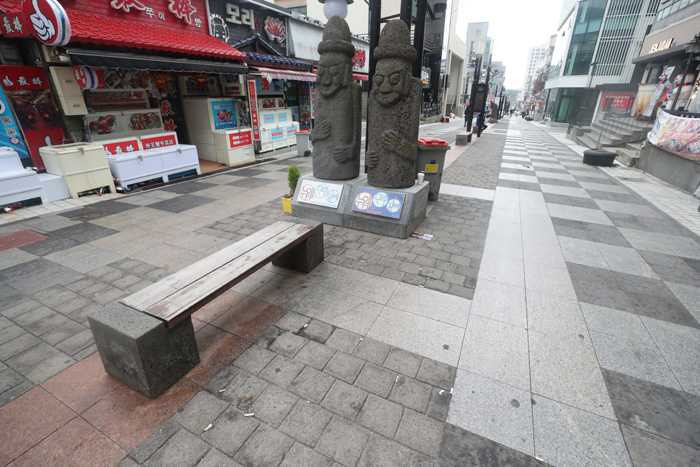Jeju Tourism Dealt Heavy Blow by Coronavirus
04 February, 2020

Jeju Island has been hit particularly hard by the coronavirus outbreak since its economy relies to at least 70 percent on tourism, mostly from China.
The government is halting visa-free entry of Chinese tourists from Tuesday, and Koreans are shunning the southern resort island because they are afraid of running into infected Chinese tourists there.
Last year 1.73 million foreigners visited Jeju, 62.5 percent of them from China, but since late last month, when the new coronavirus started spreading throughout China, Chinese visitor numbers have plunged.
Flights between Jeju and China dwindled from 24 a day on Jan. 21 to just seven on Sunday. There are 18 direct routes to Chinese cities, and 15 of them are currently on hold while the remaining ones are only 44 percent full, compared to 90 percent in boom times.
The number of fliers on the routes also plummeted from 3,700 a day to just 550.
Jeju tourism officials are also wincing at the sharp decline of Korean visitors. One industry insider said, "Almost all accommodation and car rental bookings for February have been canceled, and the reservation rate is almost zero."
Even during the Severe Acute Respiratory Syndrome and Middle East Respiratory Syndrome outbreaks, visitor numbers to Jeju rose. MERS broke out in May 2015 and lasted until December, but tourism to Jeju increased 11.3 percent that year. And in 2003, when SARS broke out, many Korean travelers opted for Jeju instead of overseas and visitor numbers rose 8.8 percent.
According to the Jeju Tourism Association, 23,657 Koreans visited the southern resort island on Feb. 1, down 32.4 percent compared to a year ago.
Hotels, restaurants and shops on the island are closing down temporarily, including the Lotte and Shilla duty-free shops that had reportedly been visited by infected patients.
Locals fear that the number of Chinese visitors will drop even more since three out of every four Chinese visitors had taken advantage of the halted visa-free entry policy.
Worse could lie ahead for high season. "January and February are slow in Jeju anyway, but small businesses will go bankrupt if the crisis isn't over as peak season starts in March," one industry insider said.
Source:
TAG(s):
